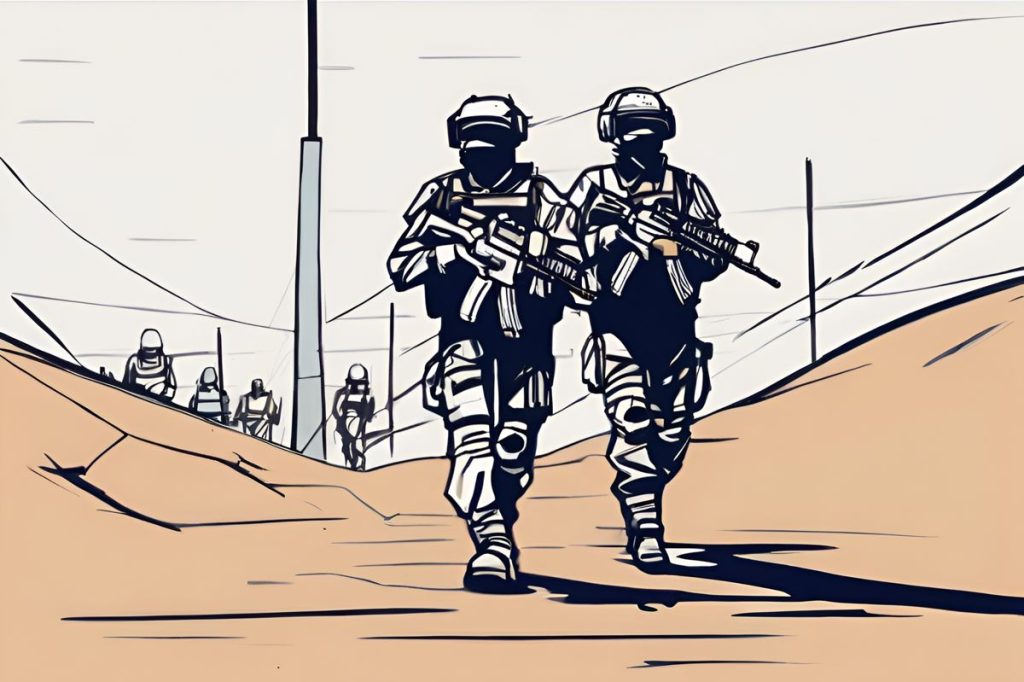Unficyp, the UN’s enduring peacekeeping force in Cyprus, has spent over 60 years patrolling the buffer zone between divided communities, preventing escalation and offering reassurance to Greek Cypriots. Its role as a stabilizer and mediator symbolizes hope for rational dialogue amidst the island’s political complexities.
What is the significance of Unficyp’s mission in Cyprus?
Unficyp, the UN’s longest-running peacekeeping operation, has played a crucial role for over 60 years in maintaining peace and stability in Cyprus. By patrolling the buffer zone and acting as a mediator, it has prevented minor skirmishes from escalating and provided reassurance to the Greek Cypriot community, despite its limitations for Turkish Cypriots. Unficyp symbolizes hope for rational dialogue in Cyprus’s political issues.
Established in a flurry of urgency by the UN Security Council, Unficyp was initially envisaged as a three-month intervention. Its inception dates back to a time when inter-communal conflict on the island of Cyprus, just prior to Christmas 1963, sparked fears of a potential clash between NATO allies Greece and Turkey. The rapid deployment of peacekeepers was seen as essential, and by the summer of 1964, approximately 6,500 troops from Unficyp were present.
The temporary assignment has remarkably stretched to 60 years. Presently, the troop count has diminished to under a thousand, yet Unficyp retains the distinction of being the world’s longest-running peacekeeping operation. With an annual budget of $56 million, close to half is funded by Cyprus and Greece. The force has seen contributions from 43 countries, summing up to over 150,000 individuals who have served under the UN flag in Cyprus, and it has been a witness to the loss of 187 peacekeepers’ lives.
The Buffer Zone and Beyond
For half a century following the Turkish invasion, the responsibility of patrolling the buffer zone that lies between the island’s divided communities has fallen to Unficyp. This 180km stretch is a testament to Unficyp’s role in upholding the status quo, settling disputes, and ensuring that minor skirmishes do not escalate into more severe confrontations. The Greek Cypriot population regards Unficyp’s presence as a reassurance—a protective barrier positioned between themselves and the opposing forces. Despite its limitations and not being empowered to halt a Turkish military advance, Unficyp’s role as a mediator and stabilizer is undisputable.
On the flip side, the Turkish Cypriots view the peacekeeping force as somewhat irrelevant, considering their security is underwritten by Turkish military might. Yet, for both communities, Unficyp has woven itself into the fabric of Cypriot life, becoming a fixture emblematic of hope for de-escalation and rational discourse in the often emotionally charged politics surrounding the Cyprus problem.
A Question of Relevance and Future
Despite being entrenched in the island’s way of life, the continuation of Unficyp’s mission is under scrutiny. The principle that underpins UN peacekeeping missions is the maintenance of peace until a political resolution is brokered. Nevertheless, after 60 years without a comprehensive settlement and half a century without significant violent conflict, the rationale for Unficyp’s ongoing presence is being questioned.
The serene conditions fostered by the peacekeepers may have inadvertently contributed to the enduring nature of the Cyprus dispute, resulting in a less urgent drive for resolution. The efforts exerted by numerous UN representatives, although well-intended, have often met with resistance and ultimately rejection. Despite temporary bursts of activity and negotiation, such as the talks at Crans Montana, long periods of stagnation have followed—raising doubts about the UN’s continued involvement and the future of Unficyp.
The absence of progress could potentially lead to the withdrawal of Unficyp, removing the peacekeeping force that has become a part of the island’s identity but whose mandate may no longer be justifiable under the current peaceful and stable conditions. With the arrival of a UN personal envoy tasked with reigniting dialogue, the hope is to avoid such an outcome. However, the inability to resume talks may signal an end to an era of peacekeeping that has lasted for six decades.
What is the significance of Unficyp’s mission in Cyprus?
Unficyp, the UN’s longest-running peacekeeping operation, has played a crucial role for over 60 years in maintaining peace and stability in Cyprus. By patrolling the buffer zone and acting as a mediator, it has prevented minor skirmishes from escalating and provided reassurance to the Greek Cypriot community, despite its limitations for Turkish Cypriots. Unficyp symbolizes hope for rational dialogue in Cyprus’s political issues.
How long has Unficyp been present in Cyprus?
Unficyp was established in 1964 as a temporary three-month intervention but has continued its mission for over 60 years, making it the world’s longest-running peacekeeping operation. Despite a reduction in troop numbers, Unficyp remains a key stabilizing force in Cyprus.
How is Unficyp viewed by the different communities in Cyprus?
The Greek Cypriot population sees Unficyp’s presence as a reassurance and a protective barrier between themselves and potential conflicts. However, Turkish Cypriots view the peacekeeping force as less relevant due to the perceived security provided by the Turkish military. Despite differing perceptions, Unficyp is seen as a symbol of hope for peace and rational discourse in Cyprus.
What is the future of Unficyp’s mission in Cyprus?
After six decades of peacekeeping without a comprehensive resolution to the Cyprus problem, the future of Unficyp’s mission is under scrutiny. The absence of significant progress in negotiations and a long period of stability have raised questions about the continued relevance of Unficyp. While efforts are being made to reignite dialogue, the possibility of Unficyp’s withdrawal looms, signaling a potential end to its six-decade mission in Cyprus.

